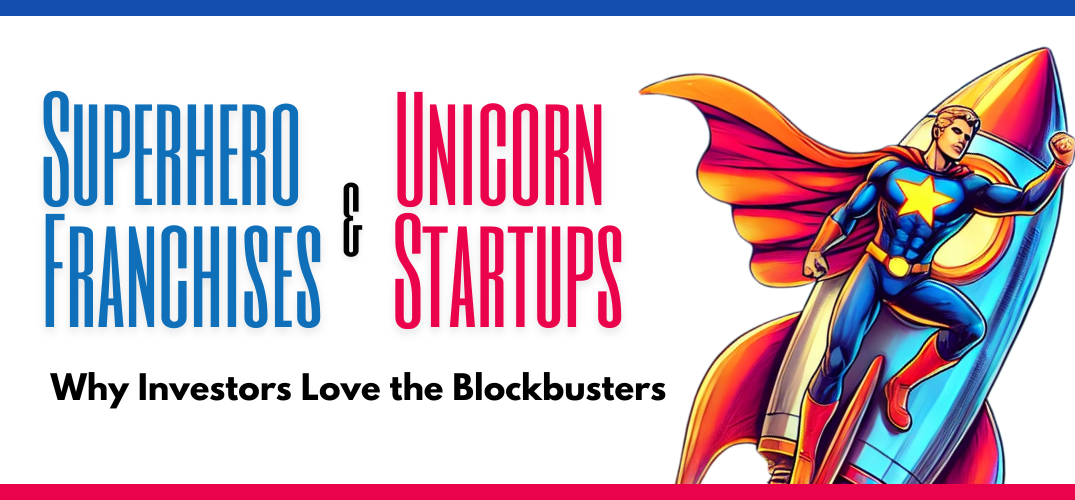The Business Plan: How to Predict the Future Without a Crystal Ball
Business Plan Startups Financial Planning 6 minutes

Ah, the business plan—the holy grail of startup documentation. If you believe the hype, it’s supposed to predict the future with all the precision of a Swiss watch, making investors drool and turning your fledgling idea into a billion-dollar company overnight. The reality? It's a bit more like trying to predict the weather while spinning in circles with your eyes closed—wild guesses, some gut feeling, and a lot of hoping no one notices you're just winging it.
A business plan is not a pitch deck. Your pitch deck is the flashy, quick-fire version that gets investors excited—heavy on the sizzle, light on the steak. It’s designed to get you a meeting, maybe even some cash. The business plan, on the other hand, is the serious stuff. It’s where you map out the gritty details: your market strategy, your financials, your long-term vision, and yes, even the dreaded exit strategy. While a pitch deck is like a first date—impressive, polished, and maybe a little rehearsed—the business plan is more like a marriage proposal. You’re in this for the long haul, and you’ve got to show your commitment.
Now, let’s talk about the wild ride that is writing this thing. You’ve got to outline your vision, list out goals that might make you break into a sweat, and back it all up with enough data to make it seem like you know what you’re doing. But that’s the beauty of it—the business plan is less about nailing the perfect forecast and more about giving yourself a roadmap (one that you’ll absolutely need to adjust as reality inevitably throws a few curveballs).
Business Plan Tips You Didn’t Ask For But Definitely Need
Of course, there’s no one-size-fits-all approach to writing a business plan, and I’m not here to give you some boring checklist. But if you want a plan that’s more than just a pile of buzzwords and pie-in-the-sky projections, here are a few tips to keep you grounded (and maybe even sane):
-
Get Real with Your Market Research
Look, you can dream big all day, but investors and partners need to see that you’ve got at least one foot in reality. So, do your homework. Know your market inside and out, and no, Googling “market trends” doesn’t count. Dig deep, get your hands dirty with actual data, talk to potential customers. If your research is solid, you won’t have to rely on vague terms like “disrupt” or “revolutionize.” Numbers talk, my friend. Use them. -
Make Your Strategy Sound Sexy (But Keep It Real)
We all love the idea of taking over the world by next Tuesday, but let’s start small. Explain how you’re going to get your first customers. What’s your unfair advantage? Why will people buy from you and not the other guy? Make it compelling but grounded. Investors want to know you’ve got a plan for surviving your first year, not just dominating a vague “global market” in five. -
Break Down Your Big Audacious Goals
Sure, go ahead and say you’re going to be the next unicorn startup—no one’s stopping you. But how are you getting there? Take those gigantic, scary goals and break them into bite-sized chunks. Think milestones that you can actually achieve, not just “become a market leader.” This way, when you check things off, you’ll feel like you’re actually getting somewhere—and you’ll look more credible to investors. Climbing Everest? Cool. But start with basecamp. -
Keep It Fun, Keep It Real
Nobody wants to read a business plan that reads like a user manual for a washing machine. Inject some personality. Make it human. If your company has a quirky, fun edge, let that shine through. It’s not just a tool to impress investors; it’s also a guide for your team—and maybe even yourself. Show them why this journey is going to be exciting, not just financially rewarding. -
Be Ready for Change
Here’s a little secret: your business plan will be obsolete the second it’s done. That’s right. Markets shift, trends change, and customers are nothing if not unpredictable. The real value in your business plan is that it forces you to think things through, but be prepared to pivot. Often. Flexibility is key, and the ability to roll with the punches will make you more resilient in the long run. -
Don’t Forget the Exit Strategy (But Don’t Start There)
Let’s be real for a second: nobody starts a company thinking about how they’ll sell it. It’s your baby, after all. But, as any parent of teenagers will tell you, there will come a day when you’re ready to hand it off and head for the nearest beach. Investors? They’re thinking about that day now. Whether it’s an acquisition, IPO, or simply a handover to new management, your exit strategy shows them how they’ll make money in the end. But let’s not kid ourselves: the exit strategy is the last thing on your mind when you’re in the trenches. Focus on building a great company first. We’ll deal with the exit when the time comes—like when your “baby” turns into a moody teenager.
Embrace the Madness
Let’s face it: a business plan isn’t about predicting the future; it’s about shaping it. It’s your chance to dream big and, more importantly, show investors that you’ve got a plan to turn that dream into reality—even if it’s a little out there. Sure, things will go sideways, and the plan will evolve, but that’s part of the ride.
At the end of the day, business plans are still one of the best tools you have to get your startup off the ground. So, take a deep breath, embrace the chaos, and start putting those wild ideas on paper. Who knows? Those “impossible” goals might just become the stepping stones to your success.
About the Author
Mike Cappelle has spent almost two decades working in the world of business transformation, digitalization, and product development. From his early days as a waffle entrepreneur to corporate consultant for Fortune 500 companies and eventually co-founder and COO of WOWS Global, Mike has gathered a wealth of experience that informs his practical, sometimes humorous take on the challenges of modern business. Having worn many hats, he’s learned firsthand the ups and downs of navigating both corporate environments and entrepreneurial ventures. Mike’s insights come from a place of genuine experience, shaped by a career full of diverse challenges and unexpected lessons.
Related Posts
-

VC SEA Startups Southeast Asia Early Stage 5 Minutes
Ansible Ventures: Backing Vietnam’s Next Generation of Builders
Ansible Ventures is a Vietnam-first, early-stage VC backing software-first founders at pre-seed to pre-Series A. See their thesis, notable bets, and how WOWS can connect you via warm, qualified introductions. -

SEA 2025 startups 6 Minutes
Follow the Funding: What SEA’s 2025 Investment Landscape Reveals
Southeast Asia’s startup funding in 2025 is seeing a dramatic sectoral shift: while total capital is down 87%, AI and SaaS startups are booming, and traditional sectors like logistics, foodtech, and health are freezing. Here's what founders and investors need to know. -

Startups Venture Capital Unicorn Startups 5 minutes
Superhero Franchises and Unicorn Startups: Why Investors Love the Blockbusters
What do superhero franchises and unicorn startups have in common? Investors love them for the same reason—they’re scalable, high-impact, and built for long-term success. Learn why your startup needs an origin story, a killer team, and the potential to create a universe of opportunities in this blockbuster blog from WOWS Global. -

startups venture capital 5 minutes
Don't Screw Yourself by Giving Away Redemption Rights: A Cautionary Note for Startups
Startup founders, beware! Redemption rights in your term sheet can become a financial burden that jeopardizes your business. Learn how to negotiate better terms and protect your company’s future. -

Startups Fractional CFO Fundraising 5 minutes
Why Your Accounting Director Might Not Be Enough: The Surging Demand for Fractional CFOs in Startups
In the fast-paced world of startups, having an Accounting Director may not be enough. Discover why over 75% of pre-Series B startups are turning to fractional CFOs for strategic financial guidance that can make or break your growth trajectory. -

Fintech Startups Social Investing Willy Tan 8 minutes
An Interview with Willy Tan: Founder of Seeds on Empowering Financial Literacy in SEA
Dive into our exclusive interview with Willy Tan, the founder of Seeds, a groundbreaking social investing platform in Southeast Asia. Discover his journey, the platform's mission, and insights on building a fintech startup focused on financial literacy.
